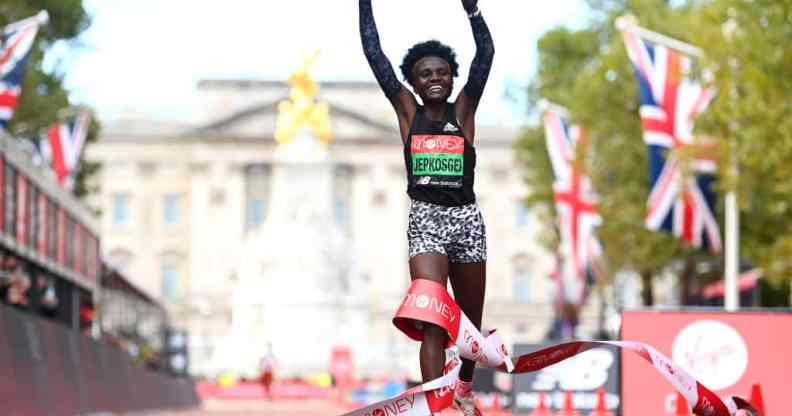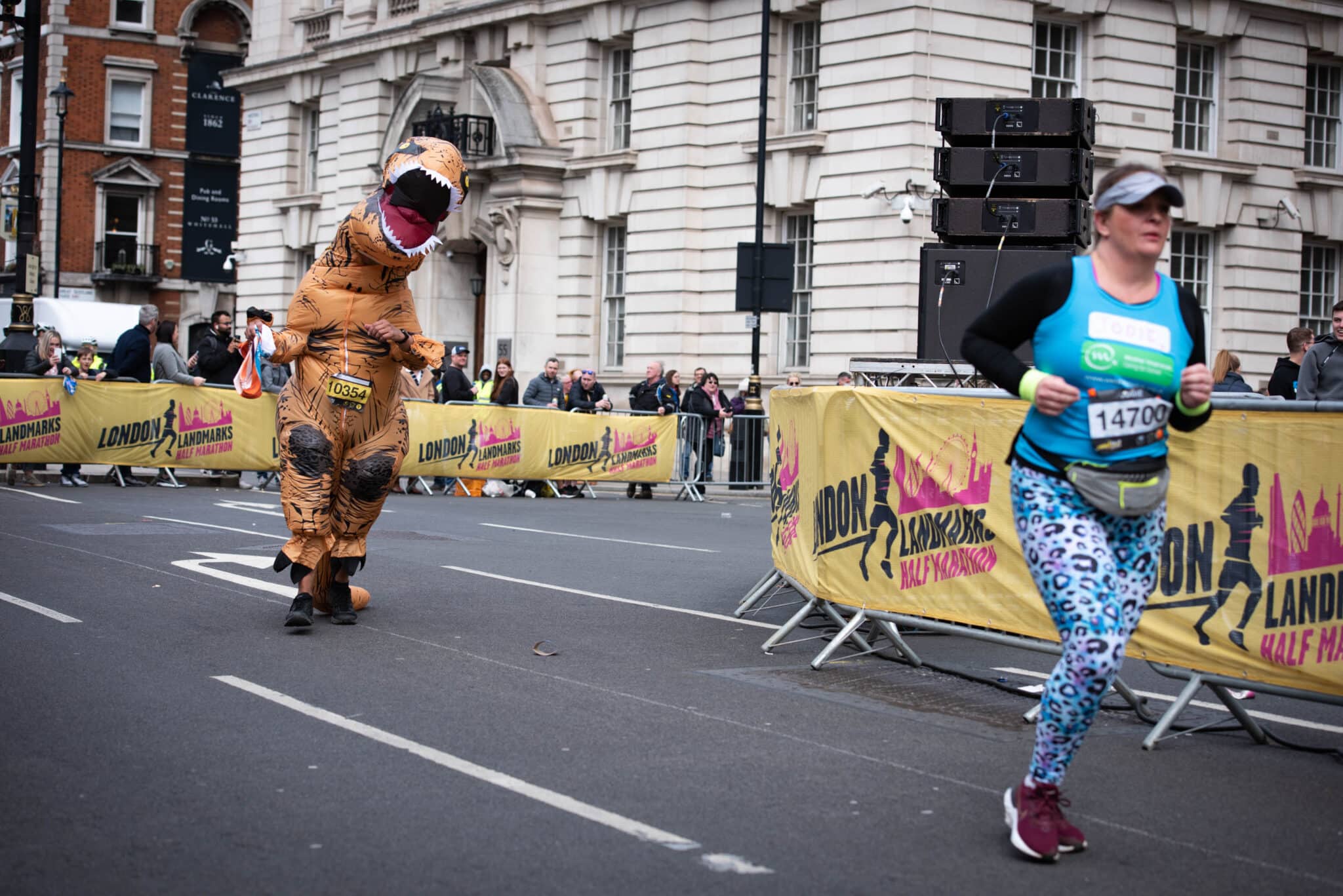London Marathon adds non-binary category for first time in welcome step towards inclusion

Joyciline Jepkosgei of Kenya celebrates winning the women’s elite race during the 2021 Virgin Money London Marathon. (Alex Davidson/Getty)
London Marathon organisers have added a non-binary gender marker option for 2023 participants.
Organisers confirmed on Wednesday (14 September) that entrants for the mass participation element of the 2023 marathon will have the option of three gender markers – male, female, or non-binary.
However, elite runners, plus those in the “championship” and “good for age” categories, will not be able to register as non-binary. This is because all three operate under World Athletics rules.
Organisers said the change was implemented after an extensive review and consultation period by London Marathon Events (LME), as part of a vow to make next year’s event the “most diverse, equitable, and inclusive marathon to date”.
Trans charity Mermaids commended the decision in a tweet on Wednesday (14 September), saying: “Gold medal for the organisers!”
The London Marathon 2023 ballot, which allows participants to apply for a place on the starting line, will open on 1 October, a day before the 2022 race takes place. Runners applying through other entry routes, including charity entries, will also be able to choose from the selected markers.
‘An event for everyone’
TCS London Marathon event director Hugh Brasher said: “This is a significant step forward for the TCS London Marathon as we continue our journey to make our event truly inclusive,”
“We know there is still much more to be done, but changes such as this demonstrate our commitment to making the TCS London Marathon an event that is for everyone.”
As part of its push towards inclusivity, LME announced additional entries for “assisted participants, enhanced policies for participants who are pregnant or postpartum, and special considerations for participants in the virtual TCS London Marathon.”
These additions will be implemented on every event organised by LME.

A runner dressed as a dinosaur approaches the finish line during the London Landmarks Half Marathon through Westminster and the City. (Loredana Sangiuliano/Getty)
Additionally, the last 250-metre stretch of this year’s marathon will be dedicated to what LME has dubbed the “Rainbow Row“. This will feature members of the queer community cheering on participants in a queer “carnival” just 5.6 miles before the race’s finish.
Brasher said the section, located just past the 21-mile mark on the course in Butcher Row, Limehouse, will be full of “energy and entertainment” that will give the runners a motivational lift for the final push.
No ‘robust research’ on trans athletes
The news is welcome relief from a wave of anti-trans policies in amateur and elite-level sporting events across the country.
Welsh Rugby Union announced a ban on trans women from the women’s sport on 7 September, following the example of the English Rugby Football Union and the Irish Rugby Football Union.
In June, the world swimming body FINA effectively banned trans women from women’s competitions.
These policies come amid a backdrop of anti-trans rhetoric from politicians and some athletes.
Most recently was a ridiculous assertion by former snooker champion Maria Catalano that trans player Jamie Hunter, who won a women’s circuit tournament on 1 September, would somehow bring about “the end of women’s sports.”
In an interview with The Telegraph, she said: “I don’t believe that women can compete against men on a level playing field in sport… We are wired differently, we think different. We are mentally different, and I do believe 100 per cent there is an advantage.”
Despite the fact that Snooker is considered a “precision sport” by the International Olympic Committee, the theory that there is an inherent advantage for those assigned male at birth (AMAB) is also disputed by many professionals in sports.
Professional swimmer and trans masc activist Schuyler Bailar said that he was confused by FINA’s choice to ban trans people because of a suggested “advantage”. He said there isn’t enough research to make a conclusive decision on the matter.
“There’s a really big problem with putting out rules right now on trans athletes because we don’t actually have robust research on trans athletes, why? Because we’re not allowed to play,” he said.
“Not a lot of us have actually competed at elite level sports because of the amount of discrimination we experience and now, because of FINA’s new rule, we will not be allowed to compete.”

